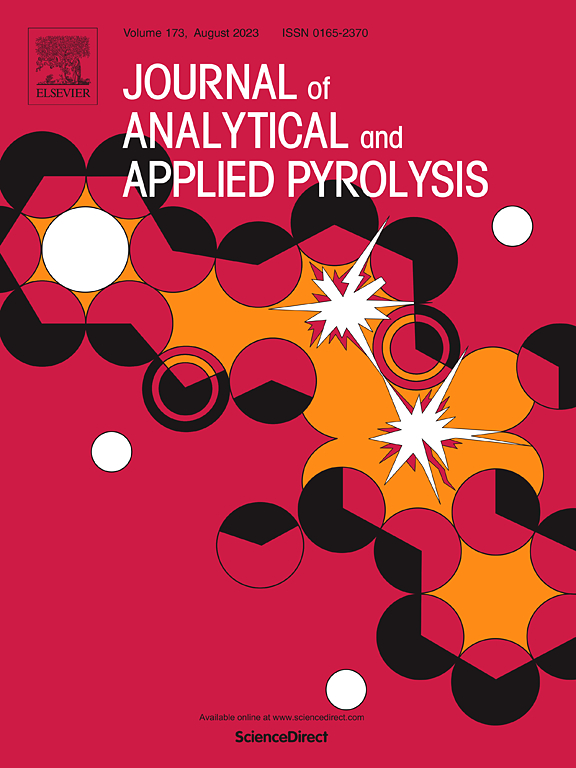Analyzing the pyrolysis mechanism of advanced composites based on nitrotriazolone and energetic cellulose-rich polymers
IF 5.8
2区 化学
Q1 CHEMISTRY, ANALYTICAL
引用次数: 0
Abstract
This study investigated the structure, thermal decomposition, and mechanism of nitrotriazolone (NTO)-based composites. Three types of energetic composites namely, nitrocellulose (NC)/NTO, microcrystalline nitrocellulose (MCCN)/NTO, and carbamate microcrystalline cellulose nitrated (M3CN)/NTO were prepared. The obtained results revealed that NTO particles were homogeneously dispersed or embedded within the modified or unmodified nitrated polymeric chains. This dispersion effectively inhibited the crystal growth of NTO particles, resulting in submicron-sized particles. In addition, the thermolysis of NC, MCCN, and M3CN remained unchanged according to thermal analysis results, while the second temperature peak was significantly lower than that of raw NTO. Notably, the thermolysis of the nitrated polymers (NC, MCCN, and M3CN) occurs independently when combined with NTO. It was found that the release of gaseous species during the initial decomposition phase significantly influenced the thermal profile of NTO, thereby altering its decomposition mechanism. Thermogravimetric analysis coupled with fourier transform infrared spectroscopy (TGA-FTIR) findings highlighted the significant influence of nitrated polymer types on the gaseous products of NTO decomposition, affecting the intensity and the type of nitrogen oxides generated during pyrolysis. These results present a promising fabrication strategy for utilizing NTO-based energetic composites in high-energy propellants and explosives.
分析基于硝基三唑酮和富含高能纤维素聚合物的先进复合材料的热解机理
本研究探讨了硝基三唑酮(NTO)基复合材料的结构、热分解和机理。制备了三种高能复合材料,即硝化纤维素(NC)/NTO、微晶硝化纤维素(MCCN)/NTO 和氨基甲酸酯微晶硝化纤维素(M3CN)/NTO。结果表明,NTO 粒子均匀地分散或嵌入在改性或未改性的硝化聚合物链中。这种分散有效地抑制了 NTO 颗粒的晶体生长,从而形成了亚微米尺寸的颗粒。此外,根据热分析结果,NC、MCCN 和 M3CN 的热解过程保持不变,而第二个温度峰明显低于未加工的 NTO。值得注意的是,当硝化聚合物(NC、MCCN 和 M3CN)与 NTO 结合时,其热解过程是独立发生的。研究发现,在初始分解阶段释放的气态物质会对 NTO 的热曲线产生重大影响,从而改变其分解机制。热重分析和傅立叶变换红外光谱分析(TGA-FTIR)结果表明,硝化聚合物类型对 NTO 分解的气态产物有重大影响,会影响热解过程中产生的氮氧化物的强度和类型。这些结果为在高能推进剂和炸药中使用基于 NTO 的高能复合材料提供了一种前景广阔的制造策略。
本文章由计算机程序翻译,如有差异,请以英文原文为准。
求助全文
约1分钟内获得全文
求助全文
来源期刊
CiteScore
9.10
自引率
11.70%
发文量
340
审稿时长
44 days
期刊介绍:
The Journal of Analytical and Applied Pyrolysis (JAAP) is devoted to the publication of papers dealing with innovative applications of pyrolysis processes, the characterization of products related to pyrolysis reactions, and investigations of reaction mechanism. To be considered by JAAP, a manuscript should present significant progress in these topics. The novelty must be satisfactorily argued in the cover letter. A manuscript with a cover letter to the editor not addressing the novelty is likely to be rejected without review.

 求助内容:
求助内容: 应助结果提醒方式:
应助结果提醒方式:


